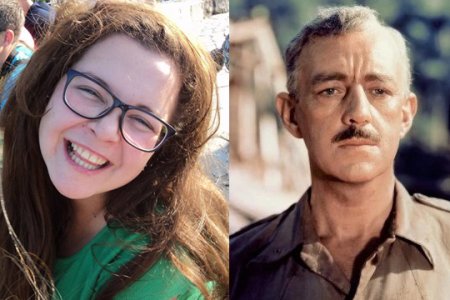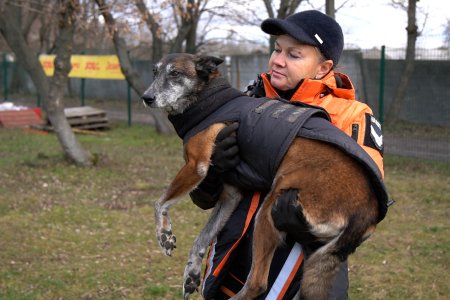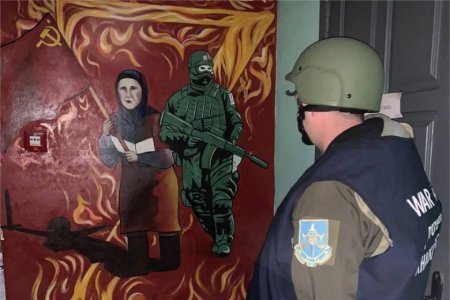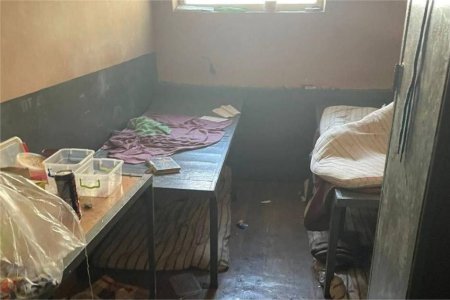24 February
I met the beginning of the war at home. My wife and I lived in an apartment on the eighth floor in the Zapadny microdistrict. I did not think that Putin would attack Ukraine because he knew the armed forces of the Soviet Union very well. It was a very rotten structure. When I served, I saw how equipment from a motorized infantry regiment was taken out for training. Tanks and armored personnel carriers were constantly breaking down; they broke down every 200 meters. And this is in the Soviet Union, where there was not as much corruption as now in Russia. But Putin, as it turned out, had nothing upstairs.
On 25 February, at 11 a.m., my wife and I were home. Suddenly, the house was hit — a rocket hit the first entrance. Fortunately, we lived in the second section. Almost immediately, another rocket arrived and hit the pumping station in the yard. The plane launched two missiles. I think they were aiming for the pump house, and one hit it. A rocket hit the eighth floor, and several floors fell. After that, my wife and I went down to the basement and didn’t come out for a long time. In total, we spent 35 days there. There were severe frosts throughout March. It was some kind of curse — minus 7-8 degrees [Celsius].
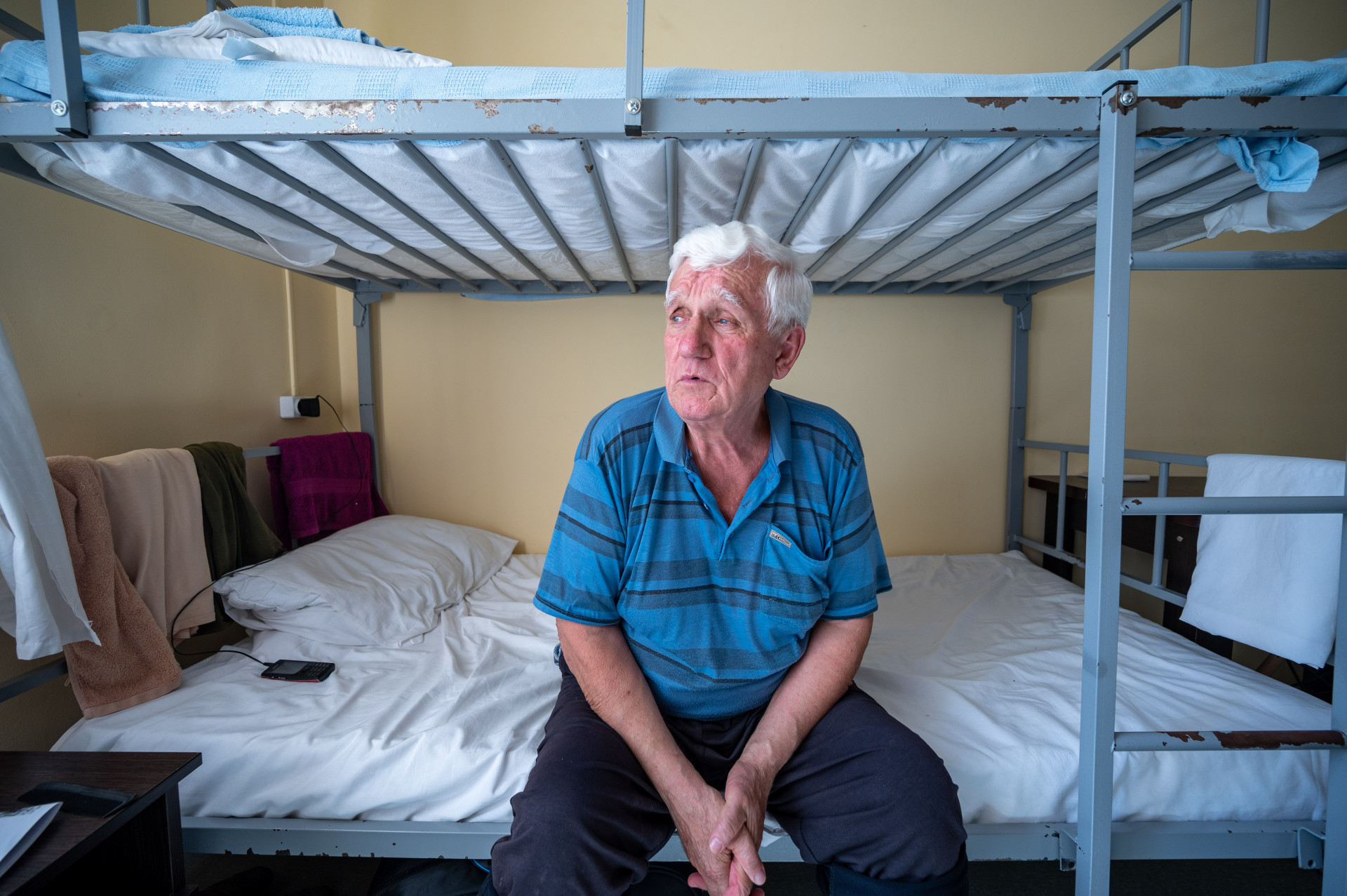
It was impossible to stay in the yard
There were many wholesale centers along the Zaporizhzhia road. We walked along them, taking what we saw: somewhere you’ll collect potatoes, somewhere else you’ll find something else. The main thing was to bring water because only women and all pensioners were in our basement. Once we found the place with the water there. A shell hit it, and they took everything out of there. I then brought back about eight six-liter canisters. I didn’t have more containers. It didn’t seem far away, but it was still hard.
What did we eat? Basically, we took some kind of cereal, cooked it in a bowl, and that was it for the whole day. We could drink tea in the evening. That’s all we ate. We didn’t cook on the street — the first entrance where the rocket hit was destroyed, and there was a big hole instead. We set up a barbecue there and cooked. This saved us because it was impossible to stay in the yard: mines were flying and shooting. We walked around collecting firewood around the yard and surrounding area.
The last shift fought until they ran out of ammunition
There was a checkpoint next to us. Several times, going out into the yard, I saw our defenders. Young guys 20-25 years old. They walked in groups, moved in lines, and fought Muscovites. At first, they were changed every three days, and while resources were delivered to them, they fought back. And the last shift fought until the ammunition ran out. Then, the guys changed clothes, hid their weapons, and tried to escape. Some went to our house №7, and others to №9. The people in that house were unfriendly, and many were pro-Russian. So, our fighters were handed over to the Muscovites; they were captured and tortured.
After this, the area was captured by the invaders. From the window, I saw them drive up in two cars. If I had a grenade launcher, I would have done away with many of them. They started purges, going door to door and checking. One came into our basement and told me: “Open the apartment.” He took me upstairs at gunpoint. He walked around, looked, and ordered to hang a white rag on the door so that it could be seen that it had already been checked. At first, it was Russian troops, and the DPR [Donetsk People’s Republic] came two days later. The Russian army moved on to the center of Mariupol, pressing our defenders against Azovstal. Azovstal was bombed day and night. The ship fired from the sea, land artillery from land. Well, the planes fired with three-ton bombs, and everything in the apartment shook. Azovstal is seven kilometers from me.
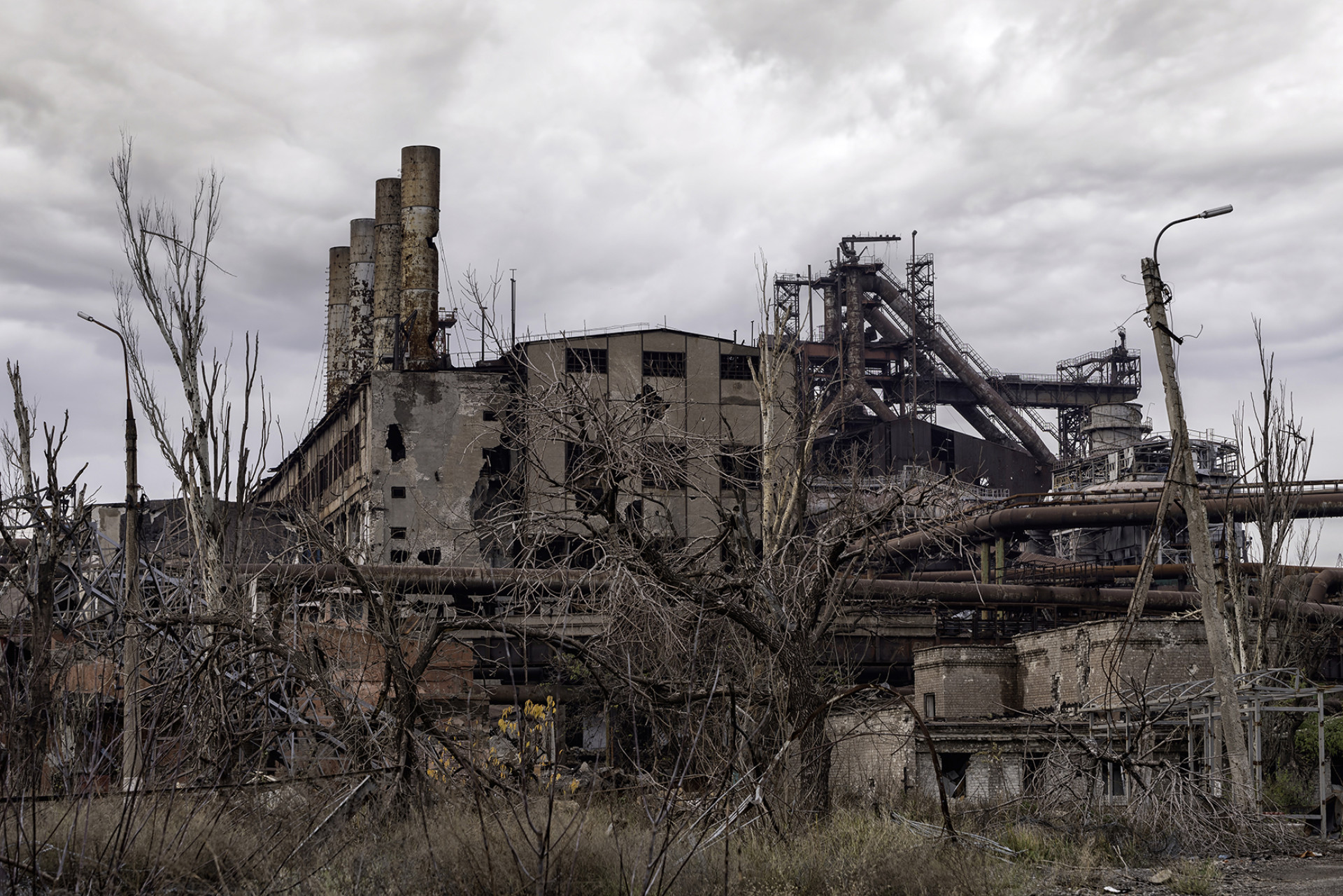
I realized that I could easily be turned in
As soon as the fighting moved towards Azovstal and our area stopped being shelled, we left the basement. My daughter and son-in-law came. The son-in-law said he would get the car, and if it starts, we’ll all go. “Are you with us?” I said that I wasn’t going anywhere. The apartment was broken; the windows and doors were all broken, and we needed to restore order. Soon, the son-in-law brought the car; it turned out that only a window was broken in one place. They and my wife left, and I was left with the cat.
At the beginning of April, the National Guard and the police appeared. The neighbors knew that I was anti-Putin. Back in 2013, I said that Putin and Yanukovych were two jackasses and both would end badly. Everyone knew I was from the Lviv Region, meaning I was “Bendera” [Ukranian nationalist]. I realized they would easily turn me in, and I had to run away before they tied me up. They’ll throw me into a basement somewhere, and I’ll rot there.
I got a “Kravchuchka” [slang for shopping card] with good wheels and a suitcase. I walked two kilometers along the road to Old Crimea to their checkpoint. There were DPR troops at the checkpoint and buses nearby at the gas station. I started asking the drivers how to get somewhere from here. They explained that every day, buses go from here to Nykolske. Then, a DPR officer saw me and wondered why I was sniffing around here. He yelled at me, and I explained that I just wanted to leave.
The journey from Mariupol to Zaporizhzhia lasted 11 days
They let me out of Mariupol without any problems, they looked at my passport, and that’s it. I quickly arrived in Nykolske but stayed there for six whole days. There was such a situation there: if you wanted to go to Russia, there were many volunteers. But they did not take people to Ukraine. One of them clung to me: “Let’s put you in a seat and carry you to the bus along with your things.” At first, I thought of going to Rostov because I saw that it was problematic to get to Zaporizhzhia. In addition, my sister lives near the border with Russia, in the Luhansk Region. And then I decided: What the hell does it matter whether the DPR is here or there if I can’t stand them? I can’t stand them anyway.
And then again, a volunteer approached me to take me to Rashka [derogatory slang for Russia], and I told him: “No, I’ll go to Zaporizhzhia.” Some guy heard this and asked: “Are you going to Zaporizhzhia? I want to get there too.” He came for his mother from Kyiv but did not find her. In the end, he found himself in the same situation as me. He suggested looking for a private car and trying to break through. Finally, he found a car and another girl who was supposed to go with us. The driver took six thousand hryvnias from each to get us to Berdyansk. We decided to leave.
We left Nykolske towards Berdyansk and passed six checkpoints, but after Mangush, we were stopped. Everyone was checked and ordered to go back. We headed back to Manhush, but the previous checkpoint did not let us into the city. I had to persuade them so we would not stay overnight in the field. We were finally allowed into Manhush, where we spent two more nights. Ultimately, we decided to return from Manhush to Nykolske and try to travel along the village roads. From the direction of Ukrainka village, there was another road to Berdiansk. Luckily, we didn’t encounter a single checkpoint there until Berdiansk. Before the city, they checked us and let us through. I stayed in Berdiansk for two days, and then volunteers took me to Zaporizhzhia. In the end, my journey from Mariupol to Zaporizhzhia lasted 11 days.
After Zaporizhzhia, I was going to settle in Kyiv with my niece. But I took a ticket to Lviv, just in case. When I contacted my niece, it turned out that they also left Kyiv for the Lviv Region. That’s how I ended up in my homeland. Our house in Mariupol was not demolished, although the neighboring entrance was destroyed. However, I don’t plan to go back.
